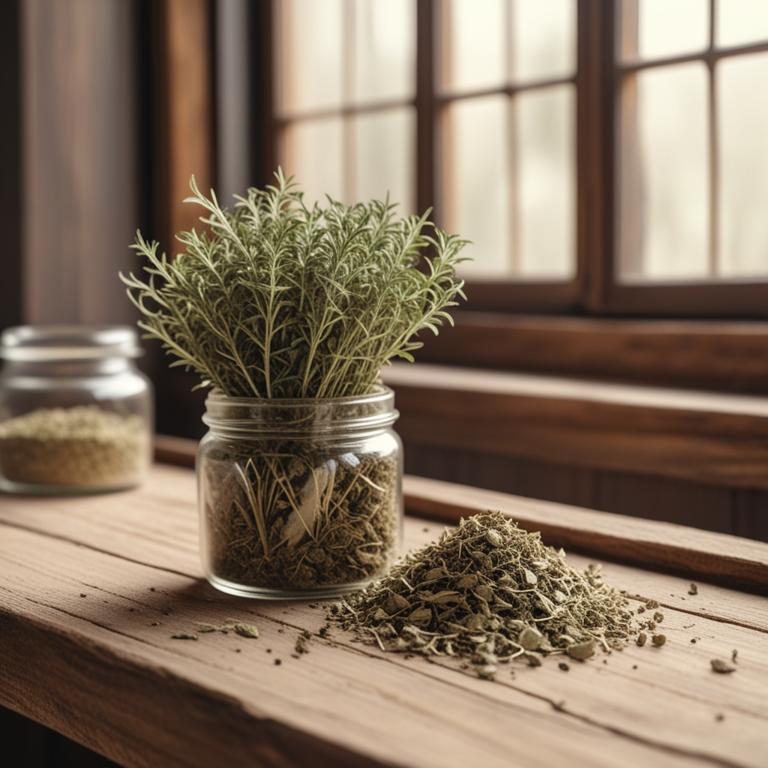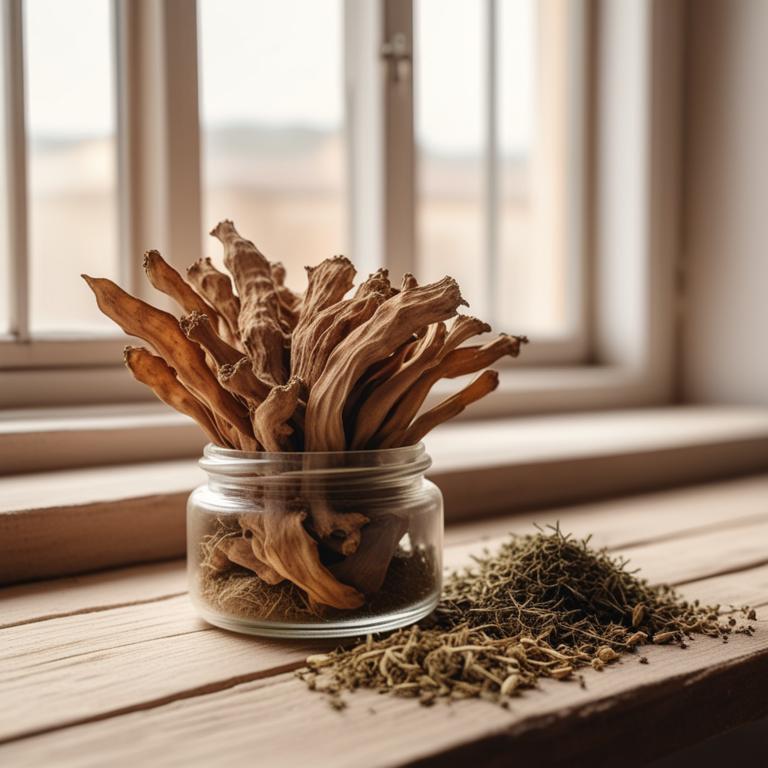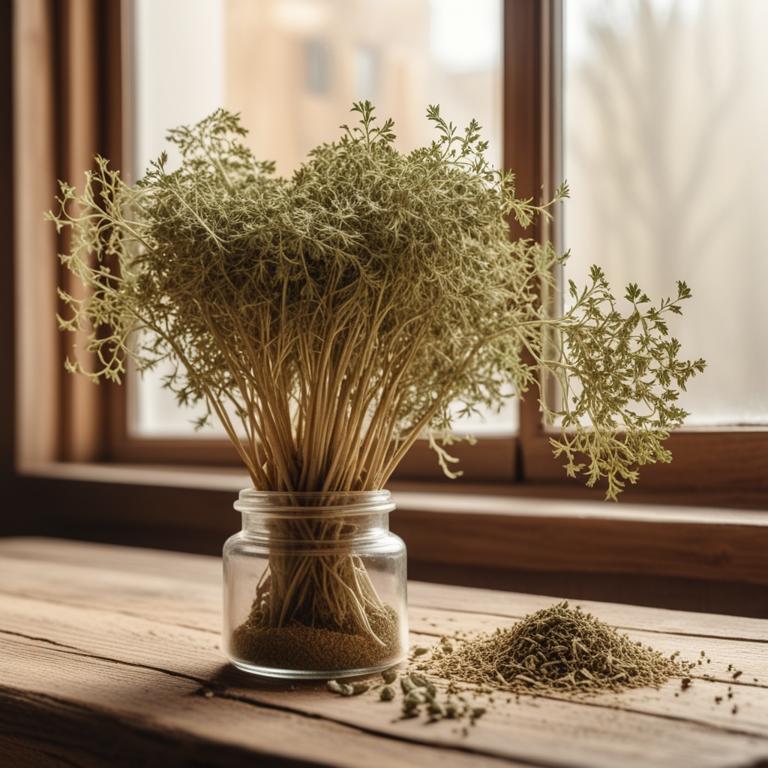Updated: Dec 1, 2024
Overcoming Bitter Taste in Mouth: Natural Causes and Herbal Remedies
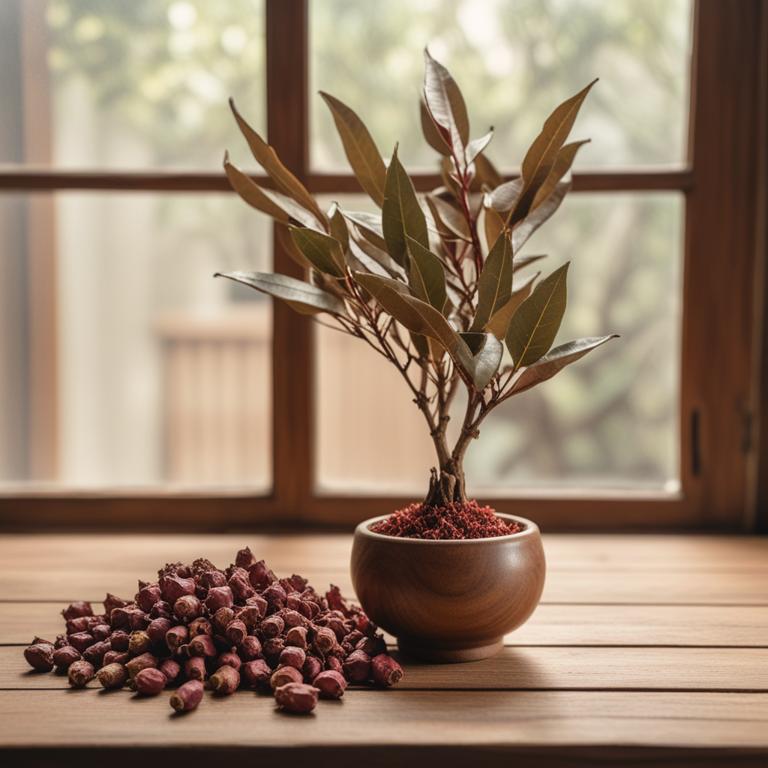
A bitter taste in your mouth can be quite unpleasant and affect your daily life.
It can make you feel self-conscious about eating and drinking in front of others, and can also be a sign of an underlying issue. So, what causes this bitter taste?. It can be due to poor oral hygiene, dry mouth, or an imbalance of bacteria in your mouth. Sometimes, it can also be a symptom of a more serious health issue, such as diabetes or a liver problem. Fortunately, there are some herbal remedies that can help alleviate a bitter taste in your mouth.
Herbs like peppermint and licorice root have natural antibacterial properties that can help balance the bacteria in your mouth and reduce the bitterness. Ginger, on the other hand, has anti-inflammatory properties that can help soothe and calm your mouth. You can make a tea by steeping these herbs in hot water, or use them in a mouthwash. To use peppermint as a remedy, try sipping on a peppermint tea after meals to help freshen your breath and reduce bitterness. Licorice root can be made into a tea by steeping the root in hot water, or taken as a supplement.
Ginger can be used as a mouthwash by steeping fresh ginger in hot water and then swishing it around your mouth before spitting it out.
Table of Contents
- What are the causes of having bitter taste in mouth?
- What are the benefits of using herbs for a bitter taste in mouth?
- What are the primary medical herbs associated with a bitter taste in mouth?
- What are the most commonly utilized herbal preparations for a bitter taste in mouth?
- Which herbs should you avoid if you have a bitter taste in mouth?
- FAQ
What are the causes of having bitter taste in mouth?
The main causes of bitter taste in mouth are quite diverse, and understanding them can help you tackle the issue effectively.
Medicine is one of the primary reasons, as certain medications like antibiotics, antihistamines, and some painkillers can leave a bitter taste in your mouth. This is often due to the active ingredients in these medications, which can stimulate the bitter taste receptors on your tongue. Dental work, such as getting a filling or root canal, can also cause a bitter taste. This is usually temporary and occurs when the dentist uses a local anesthetic to numb the area. The anesthetic can sometimes leave a lingering bitter taste in your mouth. Some substances, like bismuth, are known to cause a bitter taste.
Bismuth is often used as an ingredient in antacids and medications for treating stomach ulcers. However, it can leave a metallic aftertaste, including a bitter flavor, in your mouth. Licorice, particularly the black licorice variety, is another cause of bitter taste. This is due to a compound called glycyrrhizin, which is found in licorice and gives it its distinct flavor. Some people may experience a bitter taste after consuming licorice, especially if they consume it in large quantities. Lastly, quinine, a substance found in some antimalarial medications and tonic water, can also cause a bitter taste. Quinine has a distinct bitter flavor, which can be unpleasant for some people.
This is due to the way quinine interacts with the bitter taste receptors on your tongue, triggering a bitter sensation.
What are the benefits of using herbs for a bitter taste in mouth?
Using herbs for bitter taste in mouth has several benefits.
For one, it can help stimulate digestion and improve appetite. When we eat, our digestive system releases digestive juices to break down food. Bitter herbs can stimulate the release of these juices, making it easier to digest food and absorb nutrients.
This is especially helpful for people who have trouble digesting certain foods or have digestive issues like constipation. Additionally, bitter herbs can also help reduce inflammation and kill bacteria in the mouth, which can prevent conditions like gum disease and bad breath. They can also help stimulate saliva production, which can help neutralize acids and clean the teeth.
By incorporating bitter herbs into our diet, we can improve our digestive health and overall well-being.
What are the primary medical herbs associated with a bitter taste in mouth?

If you have a bitter taste in your mouth, there are some herbs that can help.
One of them is Zingiber officinale, or ginger, which has anti-inflammatory properties. It helps to reduce swelling and kill bacteria that cause bad breath and mouth infections. Ginger also stimulates saliva production, which washes away bacteria and debris, leaving your mouth feeling fresh and clean. Another herb that can help is Mentha x piperita, or peppermint. Its cooling effect helps to numb the mouth and throat, making it less sensitive to the bitter taste.
Peppermint also has antibacterial properties that kill bacteria and germs that cause bad breath. Cinnamomum verum, or cinnamon, has antiseptic properties that help to prevent the growth of bacteria and germs in the mouth. It also has a warming effect that helps to reduce inflammation and kill bacteria. Eucalyptus globulus, or eucalyptus, has decongestant properties that help to loosen and clear mucus from the mouth and throat. This helps to reduce swelling and inflammation, making it less likely for a bitter taste to occur. Piper nigrum, or black pepper, has antibacterial properties that help to kill bacteria and germs that cause bad breath.
Its piperine content also stimulates digestion, which helps to break down food and reduce the risk of bad breath.
What are the most commonly utilized herbal preparations for a bitter taste in mouth?
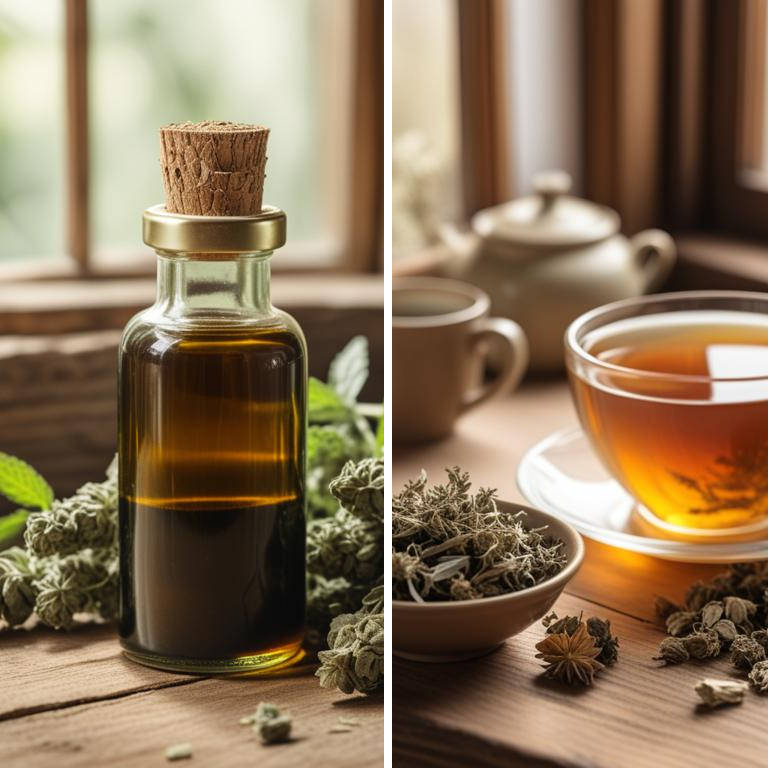
If you're experiencing a bitter taste in your mouth, herbal preparations can be a great way to help.
A decoction is a type of preparation where herbs are boiled in water to release their active compounds. This method is especially good for roots and bark, which can be tough to release their flavors and benefits. A tincture is another option, where herbs are soaked in a solvent like alcohol to extract their properties. Tinctures are easy to take and can be added to water or food. They're also good for people who have trouble swallowing large amounts of liquid. An infusion is similar to a tea, but it's made with a higher ratio of herbs to water.
This method is good for delicate herbs that might get damaged by boiling. Tea is one of the most popular herbal preparations, and it's easy to make at home. Simply steep some herbs in hot water, then strain and drink. Tea is a great way to enjoy the flavors and benefits of herbs. Lozenges are also a good option, especially if you're experiencing a bitter taste in your mouth due to a sore throat. Lozenges are small tablets that dissolve in your mouth, releasing their flavors and benefits directly where they're needed. They're often made with soothing herbs like slippery elm or licorice root.
All of these herbal preparations can be a great way to help with a bitter taste in your mouth, depending on your individual needs and preferences.
Additional Resources:
Which herbs should you avoid if you have a bitter taste in mouth?
If you have a bitter taste in your mouth, it's best to be careful with certain herbs.
Artemisia absinthium, also known as wormwood, contains compounds that can make a bitter taste worse. Using it might make your mouth feel even more unpleasant.
Glycyrrhiza glabra, or licorice root, is often used to soothe stomach issues, but its own bitter flavor might clash with what you're experiencing. Foeniculum vulgare, or fennel, has a distinct anise-like flavor, but its bitterness can be a problem if you're already dealing with a bitter taste. Ruta graveolens, also known as rue, has a strong, bitter flavor that might exacerbate the issue.
Curcuma longa, or turmeric, is commonly used for its anti-inflammatory properties, but its own bitter taste might be uncomfortable if you're already experiencing a bitter sensation in your mouth.
FAQ
Are there any specific herbs that can prevent bitter taste in mouth?
Some herbs, like parsley and cilantro, have been known to counteract bitter tastes in the mouth.
These herbs contain compounds that can neutralize bitter molecules. Eating a small amount of parsley or cilantro after consuming bitter foods can help balance the flavor.
This is a common practice in some cuisines.
Is it safe to use herbal remedies for bitter taste in mouth during pregnancy?
If you have a bitter taste in your mouth during pregnancy, some herbal remedies might be tempting to try.
However, it's best to use them with caution. Some herbs can affect the baby's development or cause other pregnancy complications.
Choose herbal remedies that are specifically designed for pregnancy and follow the recommended dosage carefully.
Are there any herbs that can reduce the frequency of bitter taste in mouth?
Some herbs like parsley and cilantro may help reduce the frequency of bitter taste in the mouth. They contain compounds that can counteract the bitter flavor, making them a possible natural remedy for this issue.
Can i combine different herbal remedies for bitter taste in mouth?
Combining different herbal remedies for a bitter taste in the mouth can be tricky.
Some herbs, like peppermint, have a strong flavor that might not mix well with others. For example, mixing peppermint with dandelion root might make the taste even more bitter.
It's best to start with small amounts and see how your body reacts.
Related Articles
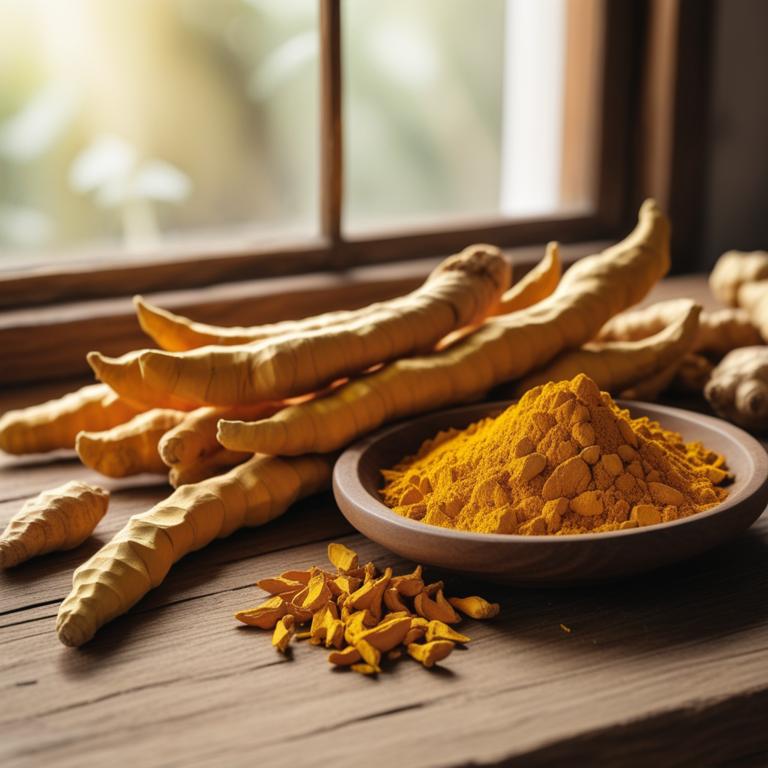
Understanding Gastritis: Causes and Natural Relief with Medicinal Herbs
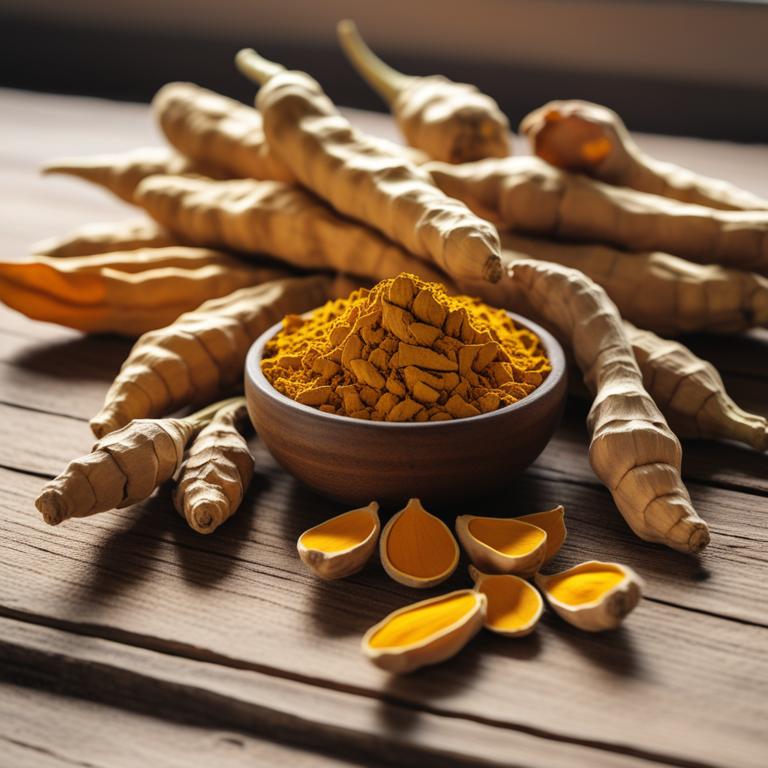
Causes and Herbal Preparations of Viral Hepatitis: A Comprehensive Guide
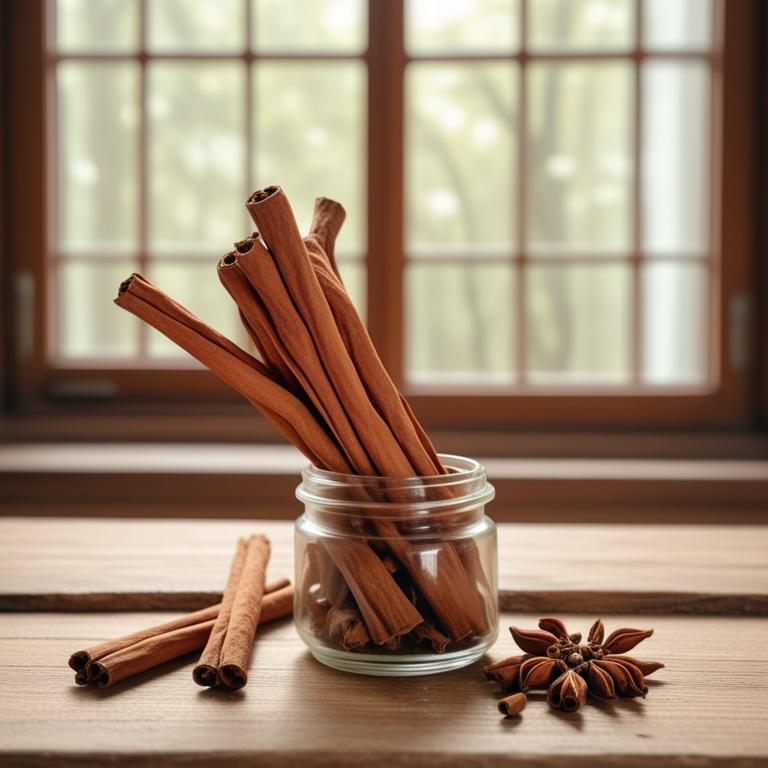
Mucus in Stomach: Understanding the Causes and Medicinal Herbs for Relief
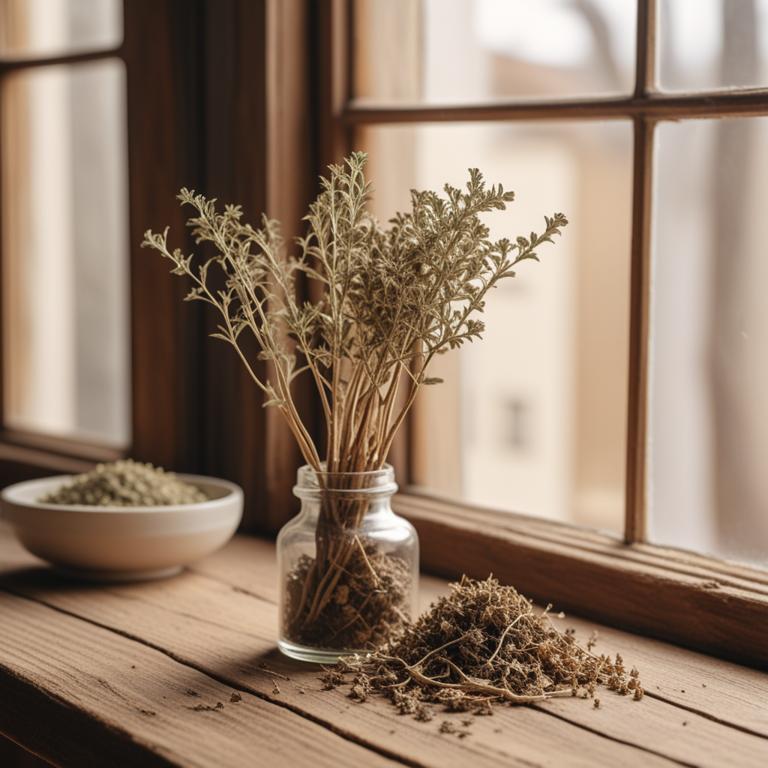
Understanding Abdominal Pain Causes and Herbal Solutions
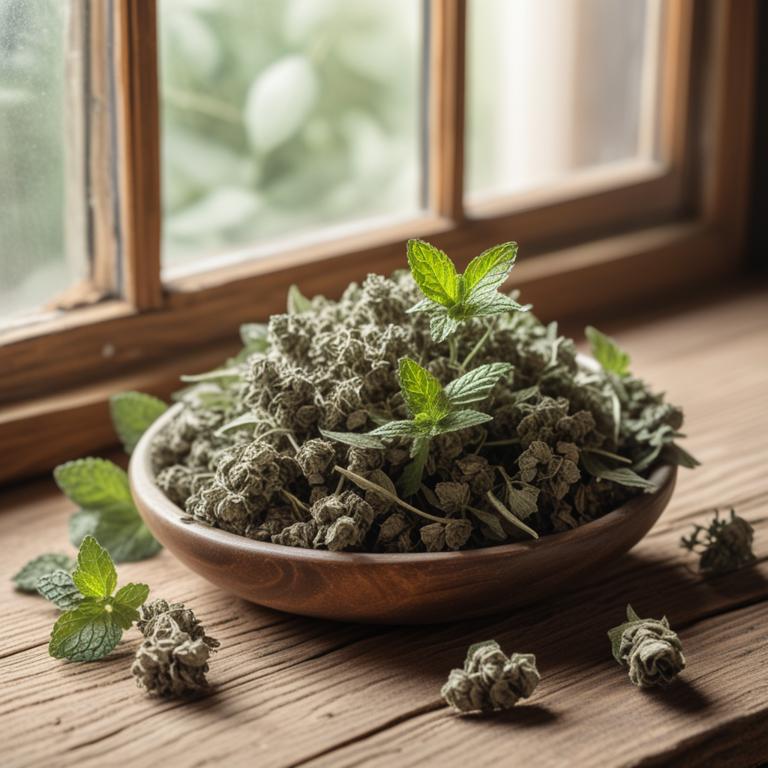
Heartburn and Digestive Health: Medicinal Herbs and Preparations
